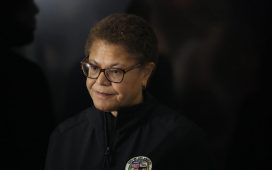Jeep is facing calls from the chief of the Cherokee Nation to quit using the Native American tribe’s name, putting pressure on the automaker to consider rebranding some of its top vehicles.
“I’m sure this comes from a place that is well-intended, but it does not honor us by having our name plastered on the side of a car,” said Chuck Hoskin Jr., the Cherokee Nation‘s principal chief.
“I think we’re in a day and age in this country where it’s time for both corporations and team sports to retire the use of Native American names, images and mascots from their products, team jerseys and sports in general,” Mr. Hoskin, the Cherokee Nation‘s chief since 2019, said in a statement first published by Car and Driver magazine Saturday.
Jeep has marketed SUVs bearing the Cherokee name since 1974, including both the Jeep Cherokee and Jeep Grand Cherokee — the company’s third- and best-selling models, respectively.
Comparatively, the Cherokee, the largest federally recognized tribe in the U.S., began using the name centuries before the automobile was invented.
“Our vehicle names have been carefully chosen and nurtured over the years to honor and celebrate Native American people for their nobility, prowess and pride,” Jeep said in a statement, Car and Driver reported. “We are, more than ever, committed to a respectful and open dialogue with Cherokee Nation Principal Chief Chuck Hoskin Jr.”
Mr. Hoskin has since told CNN there is “no way” that he would be fine with Jeep continuing to use the Cherokee name in any capacity, however.
“It certainly doesn’t honor us by using that name and it was surely never intended to,” Mr. Hoskin told the cable network Monday.
“The Cherokee name belongs to a people. An actual nation,” Mr. Hoskin added. “And I think Jeep and its parent company set out to do what they did, which is to commercialize it. Which is to capitalize on the picture that people have in the minds about Native Americans and Cherokee and to associate that with a brand and to make money in the process. [There’s] nothing wrong with making money or using branding. There is something wrong with taking the name of a proud native people and doing that.”
Several major brands have similarly abandoned culturally offensive names and imagery recently. The former Washington Redskins became the Washington Football Team in November following decades of complaints from Native American activists. Months earlier, dairy brand Land O’ Lakes ditched a Native American woman it had placed on its products for almost a century.









